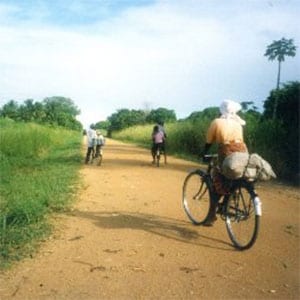According to the IPCC Special Report on Global Warming of 1.5ºC , sea-level rise will continue beyond 2100 even if global warming is limited in the 21st century to 1.5°C above pre-industrial levels. Average Arctic air temperatures have increased at more than twice the global average rate over the last two decades and this warming is expected to continue in future leading to catastrophic reductions in snow, ice, and permafrost. These changes will have significant physical and social consequences for the Arctic, including fundamental challenges to health and wellbeing, livelihoods, sustainable development, environmental protection and biodiversity, as well as observable geophysical and coastal changes. Many of these will impact local and Indigenous communities in different ways, and highlight the need for equity and justice in addressing challenges posed by a changing Arctic environment.
Over the years, strong educational and research links have been established between Scotland and the Arctic. The scope of Arctic research in Scotland extends beyond natural/physical sciences to the humanities and social sciences, with politics, law, environmental management, energy development and economics gaining increasing prominence in recent years. Yet what is becoming clear is that despite the many research strengths of Scottish-based institutions, much of it remains fragmented.
In order to facilitate collaboration and coordination among Scottish higher education institutions and research organisations, we are announcing a series of network events titled “Scotland’s Contribution to Research on the Changing Arctic”. Our goal is to lay the foundation for consolidating Scottish expertise on Arctic matters and build an interdisciplinary network for more consistent involvement of Scottish institutions in Arctic research and international forums. These events will inform a publicly available online report on the challenges and opportunities for Scottish research on the Arctic and recommendations for improved coordinating of Arctic-related research and education in Scotland.
A series of nine themed network events will be held between late February and March 2021, followed by 2 consolidation events to reflect on the findings and take initial steps towards establishing a Scotland-wide network dedicated to Arctic research.
You can register by following the links below:
- Climate justice and Just Transitions – 22nd February, 10:00 to 11:30 GMT+0 – Click here
- Mental and Physical Health – 22nd February, 12:00 to 13:30 GMT+0 – Click here
- Environmental Pollution and Biodiversity – 22nd February, 14:00 to 15:30 GMT+0 – Click here
- Cultural Revitalization – 1st March, 10:00 to 11:30 GMT+0 – Click here
- Engaging Local and Indigenous Communities – 1st March, 12:00 to 13:30 GMT+0 – Click here
- Environmental Education – 1st March, 14:00 to 15:30 GMT+0 – Click here
- Sustainable Economic Growth/Blue Economy – 8th March, 10:00 to 11:30 GMT+0 – Click here
- Geophysical Changes and Eroding Coastlines – 8th March, 12:00 to 13:30 GMT+0 – Click here
- Renewable Energy Technology – 8th March, 14:00 to 15:30 GMT+0 – Click here
- 1st Consolidation Session – 15th March, 10:00 to 11:30 GMT+0 – Click here
- 2nd Consolidation Session – 17th March, 12:00 to 13:30 GMT+0 – Click here
The network series is being organised by Glasgow Caledonian University in partnership with the University of Highlands Islands, University of Aberdeen, and the University of the Arctic (UArctic). These events and the future establishment of a Scotland-Arctic research network are being supported by the Scottish Government.

Be First to Comment